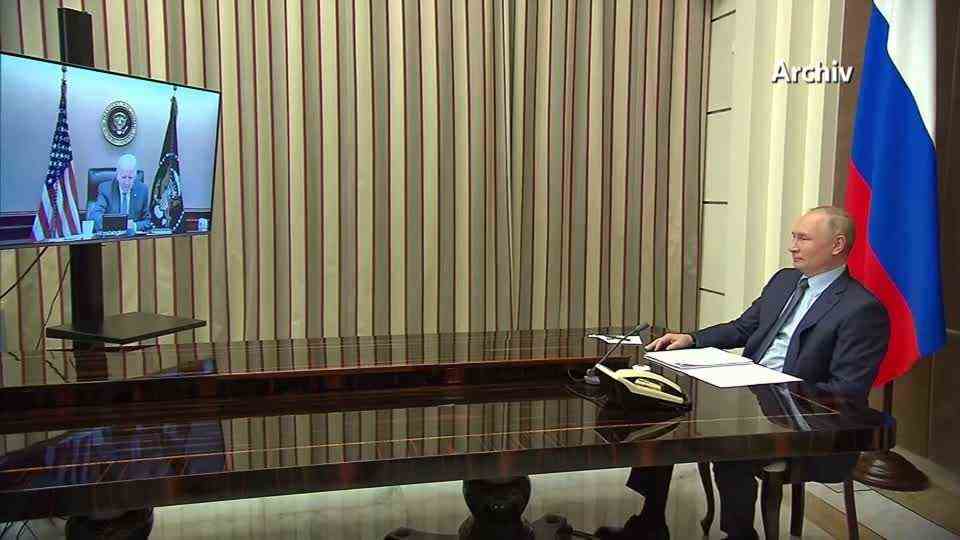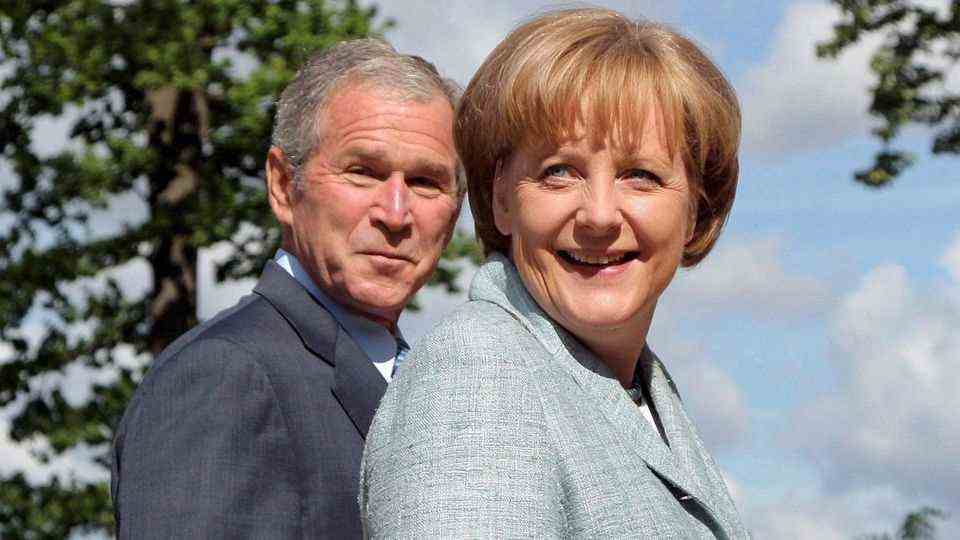Heads of state
Biden threatens Putin with a “resolute response” to a possible invasion – and he warns of a “colossal mistake
Joe Biden and Vladimir Putin at a video conference in early December
© Sergey Guneev / Picture Alliance
Joe Biden and Vladimir Putin spoke to each other on the phone for around 50 minutes on Thursday. It was about the Ukraine conflict and the event that Russia invades Ukraine.
In the Ukraine conflict, US President Joe Biden and Russian President Vladimir Putin exchanged mutual threats – and at the same time called for negotiations. The United States and its allies would “respond decisively” in the event of a Russian invasion of Ukraine, Biden said on Thursday, according to the White House, during a highly anticipated phone call to Putin. Russia must “de-escalate” in the conflict with Ukraine.
Joe Biden and Vladimir Putin threaten each other
Putin, in turn, warned Biden against imposing severe sanctions on Russia, according to the Kremlin. This would be a “colossal mistake,” said Putin’s foreign policy advisor Yuri Ushakov after the 50-minute phone call. “We hope that doesn’t happen.” The USA and other western states have threatened Russia with massive sanctions in the event of an invasion of Ukraine.
During the phone call, Biden and Putin also talked about the talks planned for January between representatives of the two countries about the security guarantees demanded by the West by Moscow. Putin adviser Ushakov said that the meeting should produce “results.”
Biden for diplomatic efforts
According to his spokeswoman Jen Psaki, Biden made clear his support for the diplomatic efforts. He stressed that “significant progress in these dialogues can only be made in an environment of de-escalation and not escalation,” said Psaki. While Putin, according to Ushakov, was “satisfied” with the phone call, a US government official said the conversation was “serious and significant”.
The second phone call between the two heads of state within a month comes against the background of the tensions surrounding the massive Russian troop deployment on the border with Ukraine. The West fears that Russia could attack the neighboring country. The government in Moscow denies any plans to attack, rejects criticism of the troop movements and, for its part, accuses Kiev and NATO of “provocations”.
Biden and Putin met in Geneva in June and last had a video call on December 7th. During the video call, Biden had threatened the Russian President with sanctions in the event of an attack on Ukraine, “as he has never seen them before”.
Further deliberations on the conflict
Intensive diplomatic efforts are now under way. Representatives of the USA and Russia plan to meet in Geneva on January 10th to discuss the conflict in Ukraine. Talks between Russia and NATO are planned two days later, and consultations between Russia and the Organization for Security and Cooperation in Europe are to follow on January 13.
Russia is demanding security guarantees from the West and has submitted drafts for two agreements with the USA and NATO, which are intended to prohibit the eastward expansion of the military alliance and the establishment of US military bases in states of the former Soviet sphere of influence. The far-reaching demands were rejected by several NATO members.

After the phone call, the Kremlin emphasized that Biden had promised Putin that the US would not deploy any offensive weapons in Ukraine. However, the White House said that Biden had merely reaffirmed the existing policy. “President Biden made it clear that the US would continue to provide defensive security assistance to Ukraine and not use offensive weapons. This was not a new commitment,” a US official told AFP.
US officials again warned of drastic economic sanctions from the US and several EU countries if Russia attacks Ukraine. Biden has “shown two ways,” said a US representative. One is “a diplomatic route,” the other is “more deterrent, including serious costs.”


